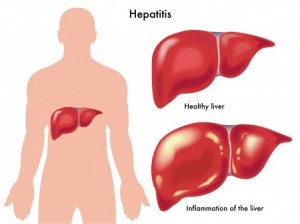History
During the 1960’s and 1970’s scientist began to notice that people carried virus in their blood known has hepatitis. They discovered two types of hepatitis A and B, which they went on to develop blood testing to identify such types of virus’s. However blood tests showing hepatitis were still coming back with negative readings for A and B so they called these results non A and non B hepatitis. The virus was not identified until the 1989 by Dr Harvey J Alter, who was the Chief of the Infectious Disease section in the Department Transfusion Medicine of the US International Institutes of Health. It was then renamed hepatitis C.
Hepatitis C Screening
Prior to the 1990’s people donating blood were not screened and tested for the hepatitis C virus, it was only in 1992 that the screening became more accurate and precise. Therefore people needing blood transfusions before this time could have come in to contact with the virus. Before the screening took place thousands of people were infected with hepatitis C through blood transfusions, according to hepatitiscnews.com it was estimated that 300,000 Americans contracted hepatitis this way. The Independent states that 4,670 haemophiliacs were given blood transfusions in the UK that were contaminated with the virus. People contracted the disease through no fault of their own so foundations and funds were set up to help people.
Compensation
People claimed medical negligence compensation as they had contracted a virus due to contaminated blood products while undergoing medical treatment. During 2011 a review by the UK Government of how much compensation such victims went underway. It was announced that apart from the one off payment of 25,000, victims who went on to suffer more serious illnesses connected with the virus would receive another payment of 25,000. Andrew Lansley, the UK Health Secretary went on to make add more funds to those who suffered most.
Still in developing countries and some developed countries there is a problem with blood and blood products that contain hepatitis C. Even surgical equipment alongside reusable glass syringes are not being sterilised correctly and people are still contracting hepatitis C this way.
Law firms are still being contacted by people who have contracted hepatitis C through hospitals. The patients are then wanting to use a medical negligence claims service such as MedicalNegligenceAssist.co.uk. These solicitors can offer free advice to anyone who has been infected with hepatitis C in medical surroundings.
Funds and Foundations
In March 2004 the Skipton Fund was set up in the UK to help and support people who contracted hepatitis C through contaminated blood from treatment received by the NHS that required the need for blood products. During 2011 the Department of Health in the UK funded another charity, The Caxton Foundation which was set up by the British Government to help and support people financially who contracted the hepatitis C virus through infected blood and tissue that was used by the NHS. The American Liver Foundation was set up in 1976 in America to help all people suffering with hepatitis C.
Hepatitis C diagnoses on the rise in the UK
In 2012 the amount of patients diagnosed with hepatitis risen by over one-third to 10,873 cases according to www.gov.uk/government/news/hepatitis-c-diagnoses-rise-by-a-third-in-england as you can see on the link.
